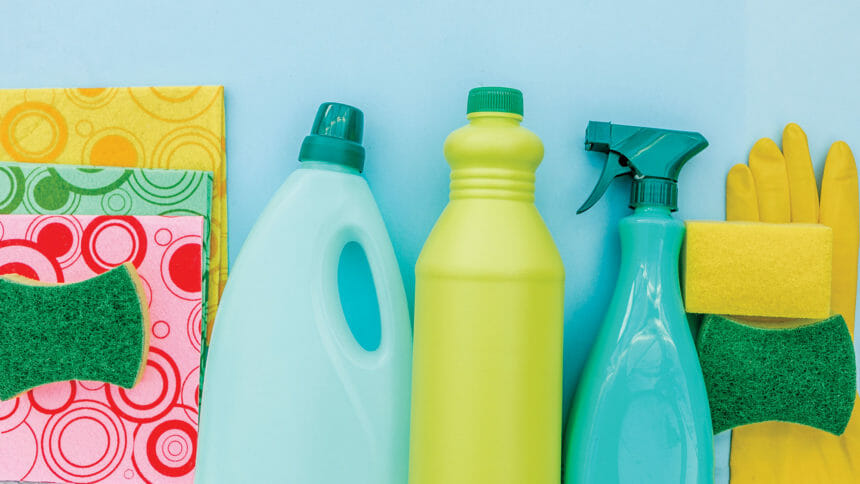
Experts are speaking out against using cleaning products in the bath tub and elsewhere as a COVID-19 treatment, following several controversial suggestions that doing so might improve symptoms.
Wellness maven Cristina Cuomo (wife of CNN host Chris Cuomo) recently advocated taking baths with a quarter cup of Clorox bleach added to the water. In a blog, she noted the practice helped her “combat the radiation and metals in my system and oxygenate it.”
Clorox bleach contains water, sodium hypochlorite, sodium chloride, sodium carbonate, sodium chlorate, sodium hydroxide and sodium polyacrylate. It is widely used in senior living settings as a cleaning disinfectant. Several of its ingredients may be harmful to humans, however.
In a post addressing possible dangers, manufacturer Lenntech noted: “After swallowing sodium hypochlorite the effects are stomach ache, a burning sensation, coughing, diarrhea, a sore throat and vomiting. Sodium hypochlorite on skin or eyes causes redness and pain.”
In a related development, the firm that makes Lysol has urged customers not to consume its cleaning products. The warning came after President Donald Trump suggested that injected disinfectants might protect people from coronavirus.
Reckitt Benckiser noted that human consumption of disinfectant products is dangerous. It issued the statement following “recent speculation and social media activity.”
“As a global leader in health and hygiene products, we must be clear that under no circumstance should our disinfectant products be administered into the human body (through injection, ingestion or any other route),” the firm said in a statement.
RB said products should only be “used as intended and in line with usage guidelines.”
Following widespread criticism, Trump later said his suggested remedy was made sarcastically. Currently, there is no approved cure or vaccine for COVID-19. At press time, more than 4.8 million people worldwide have tested positive for the novel coronavirus, according to data from Johns Hopkins University. More than 319,000 people have died.
FOCUS ON BATHING / LIFTS BRIEFS
- Arjo recently announced a new distribution partnership with therapeutic seating provider Seating Matters. The partnership will give Arjo exclusive access to the entire Seating Matters collection of tilt-in-space chairs for patients and residents at risk of pressure injuries and falls, as well as bariatric patients and those with dementia. “The Seating Matters line of chairs fits perfectly within the current Arjo portfolio,” said Anne Sigouin, North American president of Arjo. “Both companies promote safe, early mobility, and we both have the goal of helping our customers to reduce pressure injuries and falls.” Arjo is a global supplier of medical devices – including bath tubs – intended to improve quality of life for people with reduced mobility and age-related health challenges.
- Hill-Rom Holdings Inc. reported second-quarter fiscal 2020 adjusted earnings of $1.28 per share. The figure marks a 12.3% increase from a year prior and surpassed the Zacks Consensus Estimate by the same margin.
- Invacare saw improving sales in the first quarter of 2020, thanks largely to a 4% increase for mobility and seating products. The firm expects the coronavirus pandemic to negatively affect second quarter earnings, however. “We were very pleased with the mobility and seating performance in first quarter 2020,” said Matthew Monaghan, chairman, president and CEO. “We have been growing our commercial organization and improving our new product launch processes. The results in mobility and seating, especially with power wheelchairs, were strong.”
- The patient-handling market, which includes lifts, currently totals $8.9 billion. The number is projected to surpass $12.6 billion by 2024, however, according to a new MarketsandMarkets report. The analysis credits three likely growth drivers: a rising geriatric population, caregiver injuries and likely safety regulations.



